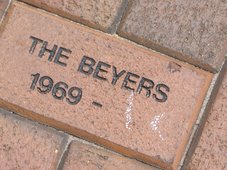Friday, April 9, 2010
Is The Problem The Phone Or The Yapping?
The Maryland General Assembly is once again considering whether to ban the use of hand-held cellphones while driving, according to this WaPo story.
The House is scheduled to vote Friday on a bill that has already passed the Senate.
WaPo reported that the research is mixed on whether such a ban would reduce accidents.
The National Safety Council has estimated that cellphone use is responsible for 1.6 million crashes a year, about 28 percent of the national total. The NSC has joined with the group FocusDriven to promote cellphone-free driving.
The NSC also cites studies that show that requiring use of hands-free cellphones -- the step that Maryland might take Friday -- does not reduce crashes.
"Cellphone driving has become a serious public threat," the NSC said in a report issued last month. "A few states have passed legislation making it illegal to use a handheld cellphone while driving. These laws give the false impression that using a hands-free phone is safe."
The NSC pointed to volumes of research that found that regardless of whether a phone is hand-held or hands-free, a cellphone conversation distracts a driver and delays reaction time when a traffic incident occurs.
"Estimates indicate drivers using cellphones look at but fail to see up to 50 percent of the information in their driving environment," the NSC said.
.....The recent NSC report addressed a question often asked about cellphone use: Why is talking on a cellphone more distracting than a conversation with a passenger? Drawing on more than 30 studies, the NSC concluded:
"Passengers tend to suppress conversation when driving conditions are demanding. Talking on cellphones has a different social expectation because not responding on a cellphone can be considered rude. In addition, callers cannot see when a driving environment is challenging and cannot suppress conversation in response. Passengers can see the roadway and may moderate the conversation."
The report found that some passenger conversations can be distracting, as can listening to loud music.
"But when the same drivers talk on cellphones, they do have a slower response time," the NSC said.
The House is scheduled to vote Friday on a bill that has already passed the Senate.
WaPo reported that the research is mixed on whether such a ban would reduce accidents.
The National Safety Council has estimated that cellphone use is responsible for 1.6 million crashes a year, about 28 percent of the national total. The NSC has joined with the group FocusDriven to promote cellphone-free driving.
The NSC also cites studies that show that requiring use of hands-free cellphones -- the step that Maryland might take Friday -- does not reduce crashes.
"Cellphone driving has become a serious public threat," the NSC said in a report issued last month. "A few states have passed legislation making it illegal to use a handheld cellphone while driving. These laws give the false impression that using a hands-free phone is safe."
The NSC pointed to volumes of research that found that regardless of whether a phone is hand-held or hands-free, a cellphone conversation distracts a driver and delays reaction time when a traffic incident occurs.
"Estimates indicate drivers using cellphones look at but fail to see up to 50 percent of the information in their driving environment," the NSC said.
.....The recent NSC report addressed a question often asked about cellphone use: Why is talking on a cellphone more distracting than a conversation with a passenger? Drawing on more than 30 studies, the NSC concluded:
"Passengers tend to suppress conversation when driving conditions are demanding. Talking on cellphones has a different social expectation because not responding on a cellphone can be considered rude. In addition, callers cannot see when a driving environment is challenging and cannot suppress conversation in response. Passengers can see the roadway and may moderate the conversation."
The report found that some passenger conversations can be distracting, as can listening to loud music.
"But when the same drivers talk on cellphones, they do have a slower response time," the NSC said.
Subscribe to:
Post Comments (Atom)





1 comment:
It's both. Talking on your cell phone is akin to drunk driving. When are people just going to hang up and drive?
Post a Comment